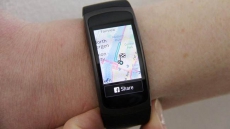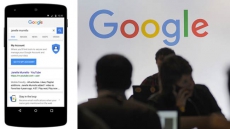NEW YORK — In a surprise move, Microsoft said Monday that it is buying LinkedIn for about $26.2 billion, a deal that could bring subtle but significant changes for the professional network's more than 430 million members.
LinkedIn will remain an independent unit of Microsoft. It will keep its name, and current CEO Jeff Weiner will stay on and report directly to Microsoft CEO Satya Nadella. LinkedIn lets members network with other professionals, upload their resumes, catch up on career advice and search for jobs.
For Microsoft, the deal presents an opportunity to cement itself as the tech company for the world's professionals, helping them find jobs, learn new skills and do their work. Microsoft will also look for ways to combine Microsoft's software for workers with the information stored in LinkedIn's online professional network.
For instance, Nadella told The Associated Press that Microsoft's digital assistant Cortana could mine LinkedIn for helpful data. "Cortana can wake up before you go into a meeting and inform you about all the people you are meeting for the first time and the connections you have with them," he said.
Similarly, he said, LinkedIn's "news feed" — which provides articles and updates from your contacts on the network — could highlight information that's relevant to a project you might be working on using Microsoft's Office 365 software. LinkedIn users might see changes in the first year after the deal is closed, Nadella said.
Microsoft may also integrate its business software with LinkedIn's growing business of providing sales professionals with contacts and information to help make sales to large companies.
LinkedIn, based in Mountain View, California, is by far Microsoft's largest acquisition — much larger than Skype, which the company bought for $8.5 billion in 2011. Microsoft Corp., which is in Redmond, Washington, is paying $196 for each share of LinkedIn Corp., a 50 per cent premium over the stock's closing price of $131.08 on Friday. The deal is expected to close this year.

LinkedIn's business and share price have been rocky recently. In February, it gave a surprise forecast for slower growth that led to a big sell-off, wiping out nearly $11 billion in market value. The company said at the time that its adjusted earnings would be 55 cents a share on revenue of roughly $820 million. Its stock climbed higher after it reported better than expected results for the first quarter, though not enough to recover from the earlier plunge.
In an email to LinkedIn employees posted online , Weiner asked them to give themselves "some time to process the news."
"You might feel a sense of excitement, fear, sadness, or some combination of all of those emotions. Every member of the exec team has experienced the same, but we've had months to process," he wrote. "Regardless of the ups and downs, we've come out the other side knowing beyond a shadow of a doubt, this is the best thing for our company."
Microsoft has a mixed track record with acquisitions, having written off more than $10 billion it poured into companies such as cellphone maker Nokia and an online ad firm called aQuantive. Nadella expressed confidence that this one will succeed, citing the company's more successful takeovers of Skype and Minecraft.
LinkedIn shares soared 47 per cent to $192.50 in midday trading Monday. Microsoft shares slipped nearly 3 per cent to $50.01.
BEYOND MICROSOFT AND LINKEDIN: BIGGEST TECH ACQUISITIONS
Microsoft's plan to buy professional-networking service LinkedIn for about $26.2 billion ranks as one of the biggest acquisitions ever in the tech industry.
Here's a look back at some of the others and how they panned out.

Dell to buy EMC for $67 billion
Dell's deal for the data-storage company remains the biggest ever for the tech industry. The deal, announced last October, is set to close later this year.
___
Avago Technologies Ltd. buys Broadcom Corp. for $37 billion in 2016
This deal closed on Feb. 1, making Broadcom Ltd. the parent company of both Broadcom Corp. and Avago Technologies. By joining forces, the rival chipmakers are hoping to make a bigger dent in the rapidly growing market for wireless devices.
___
Facebook buys WhatsApp for about $21.8 billion in 2014
The social media company expanded its messaging capabilities with this purchase. It seems to be progressing well for Facebook so far. In February, WhatsApp announced that it had passed the 1 billion user mark, more than doubling what it had when Facebook Inc. announced the deal. It remains unclear, though, whether WhatsApp will turn into a major moneymaker for Facebook.

Hewlett-Packard Co. buys Compaq for about $19 billion in 2002
This deal was championed by then-CEO Carly Fiorina as a way for HP to become a more formidable rival to computer maker IBM, but it faced staunch resistance from some prominent shareholders, including some of the heirs to the HP's founders.
The acquisition helped establish HP's largest maker of personal computers for many years, but the deal has lost its lustre as sales of desktop and laptop machines have declined with the growing popularity of smartphones and tablets. Last year, HP split into two companies, one focused on serving businesses and the other on the selling of PCs and printers.
___
Symantec Corp. buys Veritas for about $13.5 billion in 2005
The security software company expanded its storage software capabilities with the buyout. This deal turned out to be another mismatch, culminating in Symantec's decision last year to sell Veritas for $8 billion to the Carlyle Group and Singapore's sovereign wealth fund, GIC.
___
Hewlett-Packard Co. buys Electronic Data Systems for about $13 billion in 2008
The computer maker aimed to bolster its technology consulting services, but HP has had trouble retaining customers. After HP's 2015 split, EDS became part of HP Enterprises. Last month, that company said it would shed the former EDS operations as part of an $8.5 billion deal to sell its business services division to Computer Sciences Corp.

Google Inc. buys Motorola Mobility Holdings Inc. for $12.4 billion in 2012
The Internet company primarily bought Motorola for its portfolio of 17,000 mobile patents, but Google also inherited an unprofitable division that made smartphones. After losing more than $2 billion in less than two years, Google sold Motorola's smartphone business to the Lenovo Group for $2.9 billion and held on to the patents. Google had previously sold a Motorola division that makes television set-top boxes to the Arris Group for $2.35 billion.
___
Oracle Corp. buys PeopleSoft for $11.1 billion in 2005
The purchase of the maker of human resources software turned Oracle in to a more formidable rival to SAP in the market for business management applications. In recent years, Oracle has been contending with a new threat from Workday, a specialist in online personnel services that was started by PeopleSoft founder David Duffield.
___
Hewlett-Packard buys Autonomy for about $10 billion in 2011
The computer maker aimed to bolster its software and services offerings with the buyout, but this deal blew up quickly amid allegations that Autonomy had misled HP about its sales. HP absorbed an $8.8 billion charge to reflect that Autonomy wasn't worth the price that HP paid for it.

Microsoft Corp. buys Skype for about $8.5 billion in 2011
The software company bolstered its online video calling technology with this buyout.
___
Oracle Corp. buys Sun Microsystems for $7.4 billion in 2010
The buyout gave Oracle ownership of the Java programming language and catapulted the software company into the hardware business. Analysts have been generally unimpressed with the payoff that Oracle has gotten from Sun Microsystems so far.




